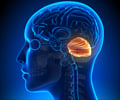Stem cells from a patient's own bone marrow help cure neurodegenerative disorders such as Parkinson's and ALS, finds research.

The research has appeared in the Journal of Stem Cells Reviews and Reports and a number of other publications.
Trials in Jerusalem and Boston
This stem cell technology, says Prof. Offen, represents 10 years of development. Inspired by advances in embryonic stem cell research and its huge potential – but trying to bypass the ethical and safety issues – Prof. Offen and his fellow researchers turned to stem cells derived from a patient's own bone marrow.
After coaxing the cells to differentiate into astrocyte-like cells, whose natural function is to guard the brain's neurons and prevent deterioration, the researchers began testing the concept in animal models. "In the mouse model," Prof. Offen explains, "we were able to show that the bone marrow derived stem cells prevent degeneration in the brain following injection of selective neurotoxins." Researchers also demonstrated that transplantation of these cells increased the survival rate in the mouse model of ALS and significantly delayed the progress of motor dysfunction.
According to Prof. Offen, this is a uniquely successful method for differentiating bone marrow stem cells into astrocyte-like cells without manipulating the genetic material of the cell itself. They are the first team of researchers to demonstrate the efficacy of this technology in vivo in various models of neurodegenerative diseases.
Advertisement
Home-grown therapy — and talent
Advertisement
Although the current study targets ALS, these cells have the potential to treat a broad range of neurodegenerative conditions, including Parkinson's and Huntington's diseases. For many conditions, explains Prof. Offen, the current available treatments only attempt to alleviate the symptoms of these diseases rather than repair existing damage.
Source-Eurekalert














